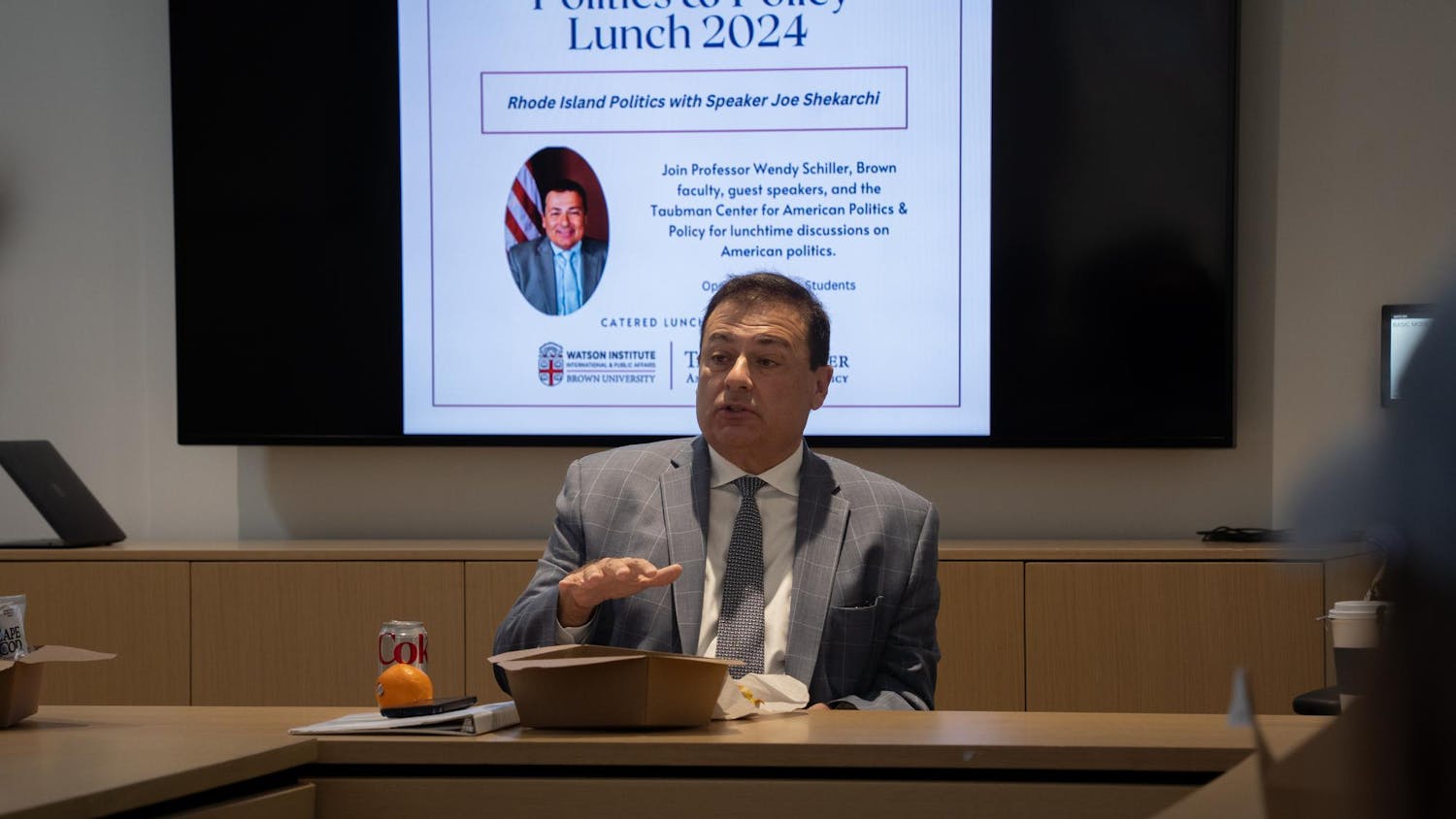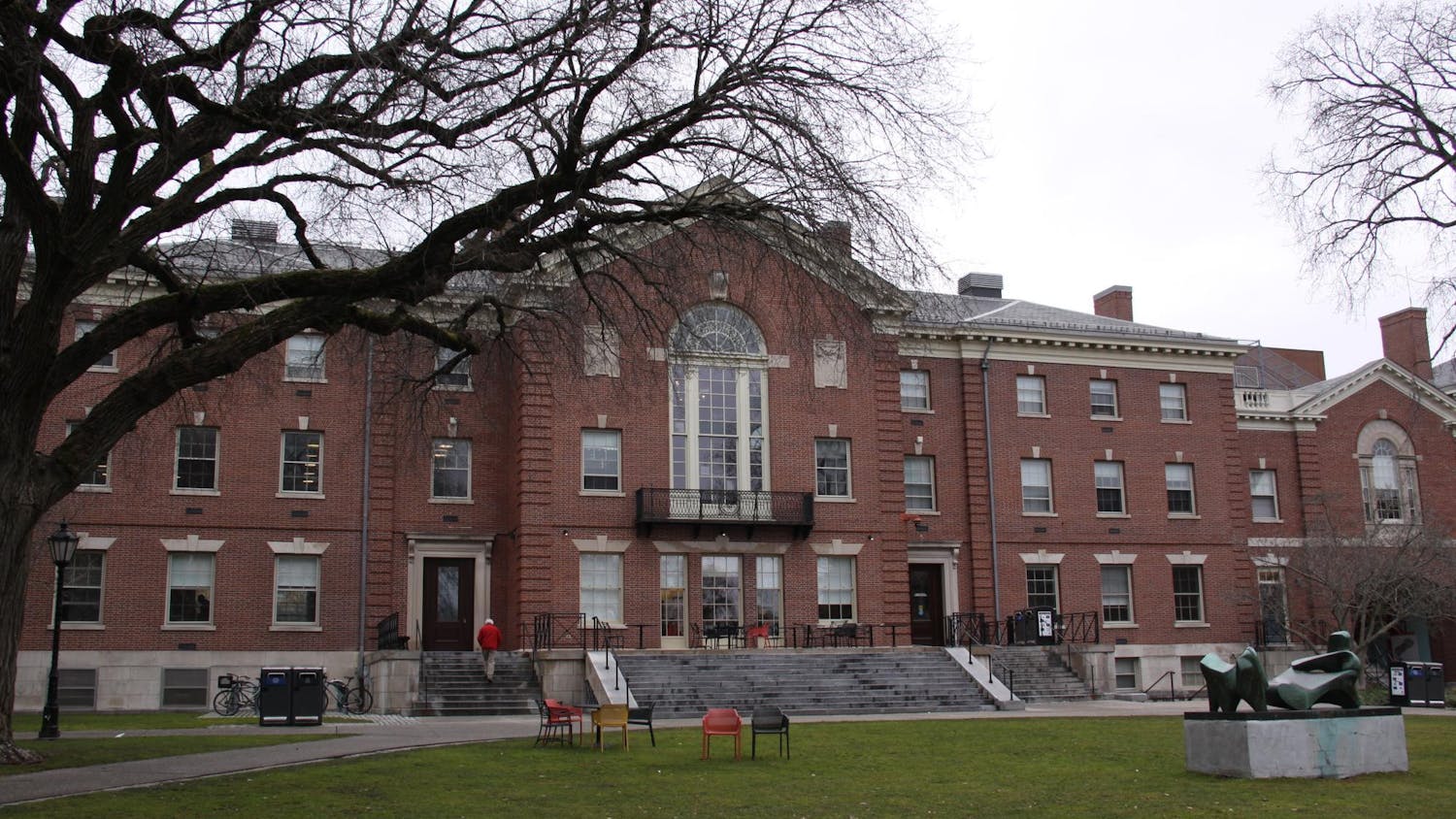With administrators scrambling to cut costs in a difficult financial climate, President Ruth Simmons is trying to do her part.
Simmons requested and received a roughly 10 percent reduction in her annual compensation this past year and will temporarily forgo contributions to her deferred compensation plan, according to Chancellor Thomas Tisch '76 and top administrators.
Simmons stands to make about $536,000 for the fiscal year ending this summer, down from her approximately $600,000 salary in the previous 12 months, officials said.
This is the third straight year in which Simmons' salary declined. According to the University's most recent public tax filings, she received $636,158 in salary in the 12 months ending June 2008, with an additional $182,304 in benefits and deferred compensation.
Combined, that made Simmons' total compensation of $818,462 during the 2007-2008 academic year her highest ever, even though her salary declined.
Data on any benefits and deferred compensation Simmons may receive have beyond her salary last year, or may this year, are not yet available, officials said.
Tisch, the University's top officer, said Simmons initially had the instinct to request a decrease in her salary several years ago when she noticed that the University had a growing revenue gap — a steep increase in financial aid grants was not being offset by a comparable increase in tuition.
Tisch said he saw the president's request as "a statement of recognition of a new financial paradigm."
The Corporation agreed to Simmons' initial request in late 2007, Tisch said. "She had a very early instinct that there were going to be some tougher times ahead," he said.
Simmons' "recognition and world view," he added, "allowed the administration to operate through the cataclysms of last fall in a very measured way."
The president's leadership in asking for a salary reduction has inspired many other top administrators to do similarly, Tisch said.
"The President sets some awfully good standards," he said. "It's a great statement as to her character and her leadership."
He declined to provide further details on the number of officials who made such requests.
Simmons declined to comment on her request to reduce her compensation. "I don't feel comfortable discussing my taking a pay cut," she wrote in an e-mail to The Herald. "This was a personal decision."
"The Corporation is responsible for my salary," she added.
In addition to the total compensation she receives from the University — which includes health-care benefits and housing — Simmons also receives compensation for serving on the boards of directors of Goldman Sachs Group, Inc. and Texas Instruments, Inc.
In 2008, she received a total $323,539 from Goldman Sachs in compensation and stock awards, and $223,322 from TI in salary, stock awards and other compensation, according to data provided by the companies.
Newcomers, new regulations
The University — along with all nonprofit organizations — is required to file public annual reports on the Internal Revenue Service's Form 990, which must include a list of the organization's five highest-paid officials and their salaries. The most recent tax report available, from the fiscal year ending June 2008, contains the last set of data before the financial crisis hit.
In that year, Simmons trailed only Vice President and Chief Investment Officer Cynthia Frost on the list of the University's highest-paid officials. In 2008, Frost received $1,076,060 in compensation and benefits, down from $1,351,639 in 2007.
Provost David Kertzer '69 P'95 P'98 was the highest-paid administrator after Simmons, taking home a salary of $420,000 and benefits of $56,473. Beppie Huidekoper, executive vice president for finance and administration, received a $400,000 salary, plus $36,701 in benefits.
For the first time in recent memory, the five highest-paid employees — not including officers, directors and trustees of the organization — were all investment officers, according to the 2008 tax report.
Following Frost, Kenneth Shimberg, the Investment Office's director of real assets and private equity, received $936,455 in total compensation, representing a 20 percent increase in compensation from 2007, when he received $785,880.
Andrew Wert and David Schofield — the Investment Office's directors of marketable securities, and Michael Speidel, the office's director of real assets and private equity, rounded out the top five, with each receiving significantly more than their reported total compensation from 2007.
In the year before that, in contrast, two top administrators in the Division of Biology and Medicine were able to crack the top five.
The across-the-board increase in total compensation for investment office staff — and their subsequent filling of the top five positions on the list— is a result of high turnover before 2005, according to Huidekoper.
"We were losing investment staff," she said, adding that the University realized that the existing salaries for these officials were not allowing Brown to compete with peer institutions.
Reductions from the top
Though these figures are from last year, the current financial situation — along with new IRS regulations stipulating a new method for compensation and benefits reporting — has made the 2008 tax filings outdated, Huidekoper said, as many senior officials have voluntarily requested substantial pay cuts and a significant reduction or complete elimination of deferred compensation.
For example, she said, Frost has taken a voluntary decrease in her deferred compensation, with the resulting difference being added to the University's endowment.
The compensation figures reported in Form 990 for 2008 also reflect inflated total compensation, Huidekoper said, adding that new IRS regulations require the University — and all nonprofits who fill out the annual tax filings — to "double-count" contributions, meaning Brown must report benefits and deferred compensation twice to satisfy the requirement.
According to Huidekoper, Simmons' request for reduced compensation is part of an across-the-board effort to partially alleviate the effects of last year's financial crisis, which resulted in an endowment loss of nearly $740 million and forced University officials to plan budget cuts totaling nearly $90 million. She said one of the ways Brown has tried to offset the effects is by implementing salary freezes, which the University began last year for those in the administration earning $175,000 or more.
This year, Huidekoper said, all administrators are facing a freeze regardless of salary.
Many individuals have voluntarily offered to take pay cuts, she said, though she added that she would not provide the exact number because she did not want anyone to feel pressure to request reductions of their salaries.
Simmons has "been very selfless," Huidekoper said. "It allows us not to have to reduce in other areas."




